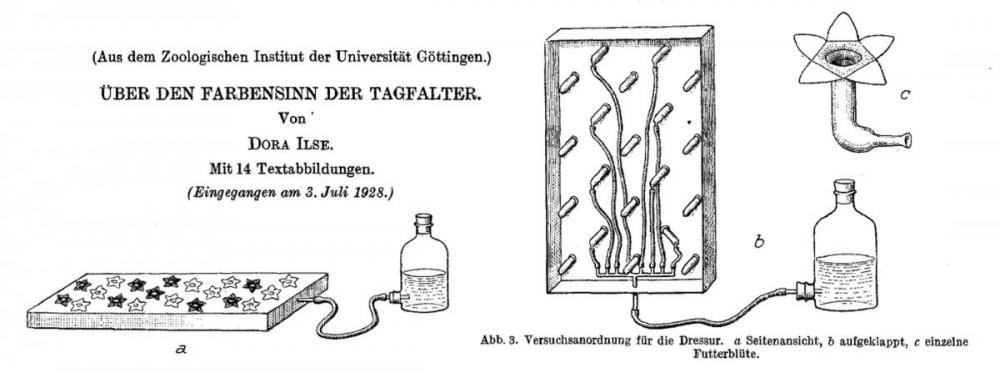Max-Planck-Institut für Wissenschaftsgeschichte
Boltzmannstraße 22
14195 Berlin
E-mail: coertzen@mpiwg-berlin.mpg.de

Dora Ilse, Color Perception of Butterflies, 1928
During the 1920s the promotion of scholarly funding emerged as the most important goal of the IFUW and its member associations. If the IFUW was to stand for democratic, coeducational university training for men and women, equal access to academic training and degrees, and equal pay with equal opportunities to undertake university-level research, then it would have to ensure first and foremost that enough women were represented on the teaching staff of the universities.
To reach that point, it seemed of utmost importance to create more opportunities for women to pursue research abroad. Female scholars required such opportunities in order to compete more successfully with men for the scarce and sought-after full university professorships. A significantly higher proportion of women would then in turn serve as teachers, researchers, and mentors for women students.
Donations from British and American women made possible the IFUW’s first international fellowships and prizes. By 1928 the IFUW had acquired enough support to fund fellowships from its own endowment. From 1928 to 1941, the IFUW awarded thirty-five annual scholarships and many more short-term fellowships and prizes. From 1933 onward, the chief beneficiaries of scholarly funds were women escaping Germany and other parts of Nazi-dominated Europe.
Among the many women to receive support from the IFUW were: Hanna Rydh, Leonore Brecher, Berta Karlik, Anne-Marie Du Bois, Luise Lammert, Margarethe Bieber, Dora Ilse, Adelheid Heimann, Betty Heimann, Gertrud Kornfeld, Hedwig Kohn, Auguste Jellinek, Helen Rosenau, Helena von Reybekiel.